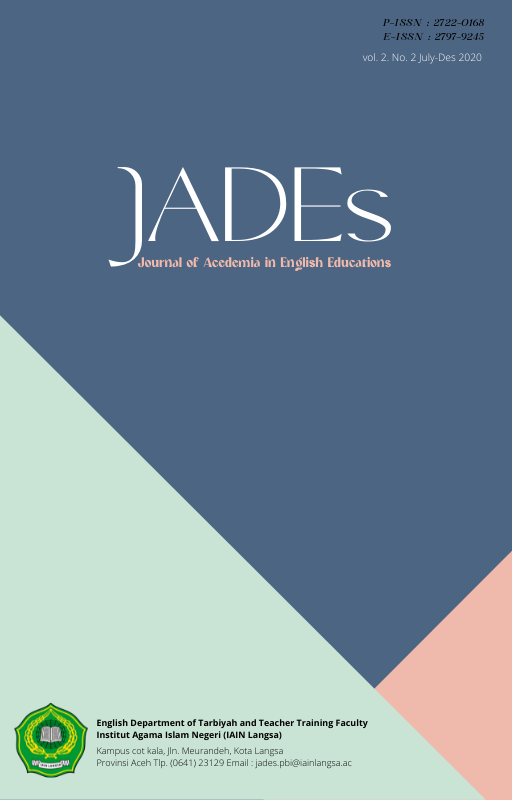Main Article Content
Abstract
Writing English paragraphs remains a significant challenge for many EFL students at UIN Raden Intan Lampung, a public Islamic university characterized by diverse linguistic and academic backgrounds. This study investigated the linguistic, cognitive, and environmental barriers to English paragraph writing through a convergent parallel mixed-methods design. Quantitative data were collected via questionnaires from 60 students, complemented by semi-structured interviews with 10 participants for qualitative insights. Results showed that linguistic difficulties, especially vocabulary limitations (78%) and grammar issues (65%), were the most prevalent obstacles. Cognitive challenges such as idea generation (48%) and paragraph organization (42%) also considerably affected students’ writing performance. Additionally, 25% of students identified environmental factors noisy classrooms and limited writing time as disruptive influences. Interview data revealed that vocabulary problems stemmed from minimal English exposure and ineffective learning strategies, while grammar struggles were linked to heavy reliance on L1 translation, influenced by students’ religious education. These findings align with Swain’s Output Hypothesis, emphasizing the role of active language production in writing development. By addressing gaps in Indonesian EFL research, this study highlights the complex, overlapping barriers faced by students in Islamic university settings and recommends integrated instructional approaches
Keywords
Article Details

This work is licensed under a Creative Commons Attribution 4.0 International License.
References
- Al-Buainain, H. (2011). Student writing errors in EFL: A case study. International Journal of Social Science and Humanity, 1(3), 126–129. https://doi.org/10.7763/IJSSH.2011.V1.21
- Alfaki, I. M. (2015). University students’ English writing problems: Diagnosis and remedy. International Journal of English Language Teaching, 3(3), 40–52. https://doi.org/10.5430/ijelt.v3n3p40
- Anindyajati, L. R., & Choiri, M. (2017). The role of vocabulary mastery in writing ability: A study of EFL students. Journal of Language Teaching and Research, 8(4), 789–796. https://doi.org/10.17507/jltr.0804.13
- Braun, V., & Clarke, V. (2006). Using thematic analysis in psychology. Qualitative Research in Psychology, 3(2), 77–101. https://doi.org/10.1191/1478088706qp063oa
- Creswell, J. W., & Plano Clark, V. L. (2018). Designing and conducting mixed methods research (3rd ed.). Sage Publications.
- Darus, S., & Subramaniam, K. (2009). Error analysis of the written English essays of secondary school students in Malaysia: A case study. European Journal of Social Sciences, 8(3), 483–495.
- Fithriani, R. (2020). Promoting students’ autonomy through process writing: EFL students’ writing anxiety and self-efficacy. The Journal of Asia TEFL, 17(3), 834–843. https://doi.org/10.18823/asiatefl.2020.17.3.11.834
- Hyland, K. (2003). Second language writing. Cambridge University Press.
- Hyland, K. (2019). Second language writing (2nd ed.). Cambridge University Press.
- Marzuki, A. G., Arsyad, S., & Vianty, M. (2018). A study on the writing difficulties of EFL university students. JELE (Journal of English Language and Education), 4(1), 1–9. https://doi.org/10.26486/jele.v4i1.256
- Muhyidin, M. (2018). Vocabulary mastery and its effect on students' writing skills. English Education Journal, 9(2), 234–245.
- Nation, I. S. P. (2009). Teaching ESL/EFL reading and writing. Routledge.
- Richards, J. C., & Renandya, W. A. (Eds.). (2002). Methodology in language teaching: An anthology of current practice. Cambridge University Press

